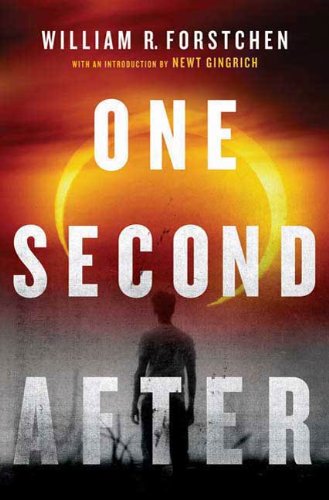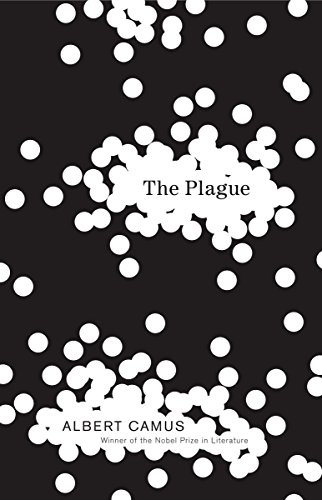In this entertaining apocalyptic thriller from Forstchen (We Look Like Men of War), a high-altitude nuclear bomb of uncertain origin explodes, unleashing a deadly electromagnetic pulse that instantly disables almost every electrical device in the U.S. and elsewhere in the world. Airplanes, most cars, cellphones, refrigerators—all are fried as the country plunges into literal and metaphoric darkness. History professor John Matherson, who lives with his two daughters in a small North Carolina town, soon figures out what has happened. Aided by local officials, Matherson begins to deal with such long-term effects of the disaster as starvation, disease and roving gangs of barbarians. While the material sometimes threatens to veer into jingoism, and heartstrings are tugged a little too vigorously, fans of such classics as Alas, Babylon and On the Beachwill have a good time as Forstchen tackles the obvious and some not-so-obvious questions the apocalypse tends to raise.
The Plague” (1947) by Albert Camus,
“The Plague” (1947) by Albert Camus, the bible of all novels about epidemics in the 20th century, ends with the recognition that such phenomena will continue to plague mankind and will destroy not just the residents of Oran in Algeria, but will recur repeatedly with the same frightening randomness. And they will demand that people look deeply within themselves to rediscover their consciences and morality, their solidarity and their altruism, which will be necessary to save their environment. Not everyone will succeed. The good people won’t necessarily survive. In modern literature the question of “Why did this plague happen,” will generally remain unanswered.
The Aztecs, the Egyptians and the Greeks, the Finnish and the Hindus – all created deities who were responsible for plagues and who would unleash them capriciously upon the world. From Pandora, who unleashed all the evils trapped in her box, to the son of Nigeria’s Yoruba people, who angers Sopona, the god of smallpox – many mythological tales are used as threats to spur man to improve his ways; if not, he is doomed to suffer from Ebola, pestilence, fever, Spanish flu and blisters.
The discovery of bacteria and viruses and the achievements of modern medicine have not eradicated the thinking that human beings have suffered from diseases or the deluge as justified punishment for their sins.





